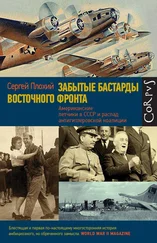The Briukhanovs’ tulip paradise came to an end early on the morning of April 26, 1966, twenty years to the day before the Chernobyl catastrophe. On that Tuesday, a powerful earthquake destroyed most of downtown Tashkent, Briukhanov’s hometown, located 112 kilometers from Angren. More than 230 administrative buildings and over 700 shops and cafeterias were either completely destroyed or rendered unusable. Miraculously, only eight people died as a result of the earthquake, but many more were injured, and close to 300,000, almost one-third of the city’s population, woke up without a roof above their heads. Among them were Briukhanov’s parents, whose brick home was badly cracked and on the verge of collapsing. For Valentina Briukhanova, it was too much to take. What if another earthquake devastated Angren as it had Tashkent? What would happen to them and their young daughter? She wanted the family to move. Encouraged by his wife, Viktor began making inquiries at power plants in other parts of the Soviet Union. It turned out that they were looking for people just like him in Ukraine. The Briukhanovs packed their bags and went to Sloviansk, where Viktor soon rose through the ranks to become chief of the turbine division and then chief engineer of the plant. 3
The Sloviansk plant was still growing when the Briukhanovs arrived in 1966. A new unit—the largest in the Soviet Union, as Viktor later recalled—was under construction. He embraced the challenge and soon showed himself a capable engineer and organizer once again. The start-up phase for new units was especially challenging, but Briukhanov managed the stress with aplomb, dealing simultaneously with construction crews that missed critically important deadlines and electricity production quotas. A hard-working, competent, and calm man of few words, Briukhanov seemed to have been born for such situations. That got him noticed in Kyiv, and in the spring of 1970 he was offered a job that would require the kind of qualities he had shown in Sloviansk, but on a much larger scale. The authorities wanted to put him in charge of the construction and then the operation of a new power plant to be built in the environs of Chernobyl, far away from the coal fields of either Uzbekistan or Ukraine. The new plant did not need coal. It would run on nuclear fuel instead.
It was a difficult decision for the young engineer. He asked Valentina for advice. She was afraid: it was a nuclear power plant, after all, and Viktor was a turbine specialist who knew nothing about reactors and nuclear power. But a power plant was a power plant, they told him in Kyiv. The superiors in Moscow agreed. There were few nuclear engineers available to build plants when the nuclear energy industry was just getting on its feet. Briukhanov accepted the challenge. But before becoming an expert in nuclear energy, he would have to become well versed in construction—a difficult task and initially a thankless job. He would regret his choice at first, but change his mind later. “I regret nothing,” he would tell a correspondent on the eve of his fiftieth birthday in December 1985. 4
There were even fewer reasons to regret anything in March 1986, when Briukhanov returned from the party congress in Moscow and got into his company car at the Kyiv railway station to drive back home to Prypiat. The Kyiv–Prypiat highway was a narrow two-lane road with a large amount of traffic. Both the nuclear power plant and the satellite city depended on it for many of their supplies.
Brikhanov’s driver knew the Kyiv–Prypiat road almost by heart—his boss was constantly going back and forth between the two cities. Party bosses, ministers, and heads of departments were all in Kyiv, and the director had to travel there for numerous meetings. Then there were thousands, if not tens of thousands, of permits and other documents that needed signatures and stamps that could be obtained only in Kyiv. After a drive of almost two hours through forested countryside still covered with snow, Briukhanov’s car finally approached Chernobyl. On the left was a concrete structure with the name of the city and a monument to Vladimir Lenin. Ahead was a central square that was rather large for a town that did not exceed 14,000 inhabitants.
Despite the construction of the nuclear power plant and the rapidly growing city of Prypiat a dozen kilometers to the north, Chernobyl had managed to stay almost the same as it had been ten, twenty, or even thirty years before it gave its name to the plant. While Prypiat had become a symbol of the industrialized socialist future, Chernobyl remained an embodiment of the rural presocialist past. The city on the Prypiat River and the port that had provided livelihoods for generations of its inhabitants featured numerous buildings dating to pre-Soviet times.
The settlement of Chernobyl was first mentioned in a Kyivan chronicle in 1193. It stood on the hunting grounds of the Kyivan princes, who ruled a vast medieval realm extending from the Carpathians in the west to the Volga towns in the east. The chronicle never explained the origins of the town’s name, but scholars would eventually point to an abundance of common wormwood, or Artemisia vulgaris , a shrub recognizable by the black or dark red color of its branches. Chornyi is the Ukrainian word for “black.” Thus the shrub gave its name to Chornobyl or Chernobyl, allowing future generations to associate the Chernobyl catastrophe with the biblical prophecy about a star called “Wormwood.”
“The third angel sounded his trumpet,” reads the Book of Revelation, “and a great star, blazing like a torch, fell from the sky on a third of the rivers and on the springs of water—the name of the star is Wormwood. A third of the waters turned bitter, and many people died from the waters that had become bitter.” The common wormwood, after which the town of Chernobyl was named, is not exactly the same shrub as the wormwood ( Artemisia absinthium ) mentioned in the Bible, but it was close enough for many, including President Ronald Reagan, to conclude that the Chernobyl accident was prophesied in the Bible. 5
The biblical prophecy aside, Chernobyl remained the capital of the north Ukrainian wilderness for most of its history. In early modern times, the rule of Kyivan princes over the region was replaced by that of Lithuanian grand dukes, and then of Polish kings. The Cossacks claimed the territory in the mid-seventeenth century, but after a few years they had to cede it to the Poles. The town became the private property of local nobles and magnates. Mainstream history has forgotten most of Chernobyl’s rulers and residents, with the exception of one young woman, Rozalia Lubomirska, a daughter of the town’s owner, who had the misfortune of traveling to Paris at the time of the French Revolution. Maximilien de Robespierre put her on trial for close ties with the royals and alleged conspiracy against the revolution. Rozalia died on the guillotine in the French capital in June 1794. She was twenty-six years old. Her image survived on a wall tile in her old Chernobyl palace, which was later turned into a neurology ward of the local hospital. 6
Whereas the French Revolution killed Chernobyl’s internationally best-known citizen, the Bolshevik Revolution of 1917 did away with much of the town’s rank and file. Some 60 percent of the town’s population of 10,000 were Orthodox Jews, first invited there in the late seventeenth century by its Polish owners. Before the revolution, Chernobyl acquired a reputation as one of the centers of Hasidism in Ukraine. The spiritual leaders of the Chernobyl Jews were rabbis of the Hasidic dynasty established in the second half of the eighteenth century by Rabbi Menachem Nachum Tversky, a student of Baal Shem Tov—the founder of Hasidism—who was himself one of the pioneers of the movement. Rabbi Tversky’s book Me’or Einayim (Light [of One’s] Eyes) became a classic Hasidic text, and his sons and grandsons became rabbis in numerous towns of Ukraine.
Читать дальше
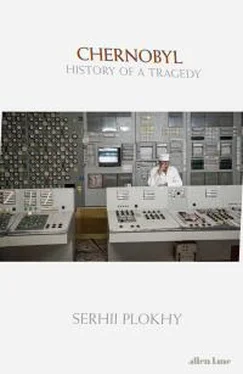
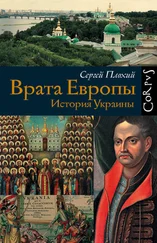
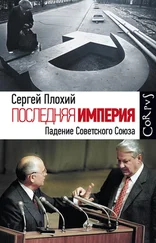



![Сергей Плохий - Чернобыль - История ядерной катастрофы [litres]](/books/385171/sergej-plohij-chernobyl-istoriya-yadernoj-katastrof-thumb.webp)
![Сергей Плохий - Человек, стрелявший ядом [История одного шпиона времен холодной войны]](/books/405163/sergej-plohij-chelovek-strelyavshij-yadom-istoriya-od-thumb.webp)

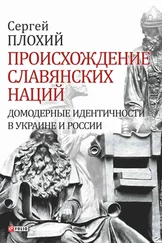
![Сергей Плохий - Потерянное царство. Поход за имперским идеалом и сотворение русской нации [c 1470 года до наших дней]](/books/433093/sergej-plohij-poteryannoe-carstvo-pohod-za-impersk-thumb.webp)
